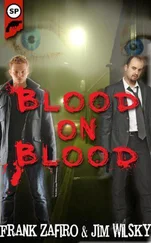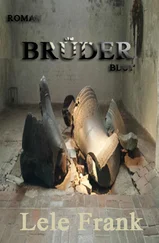Frank Tallis - Vienna Blood
Здесь есть возможность читать онлайн «Frank Tallis - Vienna Blood» весь текст электронной книги совершенно бесплатно (целиком полную версию без сокращений). В некоторых случаях можно слушать аудио, скачать через торрент в формате fb2 и присутствует краткое содержание. Жанр: Исторический детектив, на английском языке. Описание произведения, (предисловие) а так же отзывы посетителей доступны на портале библиотеки ЛибКат.
- Название:Vienna Blood
- Автор:
- Жанр:
- Год:неизвестен
- ISBN:нет данных
- Рейтинг книги:3 / 5. Голосов: 1
-
Избранное:Добавить в избранное
- Отзывы:
-
Ваша оценка:
- 60
- 1
- 2
- 3
- 4
- 5
Vienna Blood: краткое содержание, описание и аннотация
Предлагаем к чтению аннотацию, описание, краткое содержание или предисловие (зависит от того, что написал сам автор книги «Vienna Blood»). Если вы не нашли необходимую информацию о книге — напишите в комментариях, мы постараемся отыскать её.
Vienna Blood — читать онлайн бесплатно полную книгу (весь текст) целиком
Ниже представлен текст книги, разбитый по страницам. Система сохранения места последней прочитанной страницы, позволяет с удобством читать онлайн бесплатно книгу «Vienna Blood», без необходимости каждый раз заново искать на чём Вы остановились. Поставьте закладку, и сможете в любой момент перейти на страницу, на которой закончили чтение.
Интервал:
Закладка:
Aschenbrandt listened for a few more minutes and found that he could no longer tolerate the dissonances. He clapped his hands together.
“Thank you-thank you, Herr Behn!”
The young man stopped playing and, assuming that Aschenbrandt wanted to hear more examples of his work, lifted another score from the pile that he had deposited on the piano.
“Three romantic songs?” he said, his voice rising with expectancy.
Aschenbrandt smiled coldly, and let the clenched fist of his right hand land gently in the cupped palm of his left. Behn realized that his suggestion had not been warmly received and silently replaced the manuscript.
“Tell me, Herr Behn,” said Aschenbrandt slowly. “Which composers do you admire?”
“Well… apart from yourself, Maestro Aschenbrandt, I very much enjoy the music of Karl Prohaska. I heard his Fourth String Quartet last year, performed by the Fitners. I thought it was an excellent piece-so accomplished. And Woss-I adore his symphonic poem Sakuntala.”
“But, Herr Behn, these are not, by any stretch of the imagination, significant composers.”
Behn paused for a moment, adjusted his spectacles, and said, “Goldmark, Alexander Zemlinsky, and Director Mahler, of course. His second symphony is surely a masterpiece.”
Yes, the position was becoming increasingly clear.
“I am afraid, Herr Behn, that I must disagree with you on both counts. None of these gentlemen are composers of significance, and I can assure you that the director's second symphony is no masterpiece. If you think so, you are very much mistaken.”
“Oh…,” said Behn.
“It is not a symphony but an incoherent, poorly structured ragbag of ideas linked by an infantile program. As Wagner wisely pointed out, Beethoven took the symphony to its absolute eminence. Only the most stupid-or immodest-individual would seek to advance the symphony beyond Beethoven!”
“I see,” said Behn, tugging nervously at his cuffs.
“Herr Behn,” Aschenbrandt continued, “I must be frank with you. I am not overly impressed by your work. You are a competent musician, and some of your harmonic progressions show ingenuity, but you do not possess that indefinable quality, that vital spark, that gift, which distinguishes the true composer, the true artist, from the tunesmith, the dilettante.”
“But…” Behn's cheeks flushed. “Maestro Aschenbrandt, surely, under your tutelage, I could-”
“No,” Aschenbrandt interrupted coldly. “I cannot accept you as a pupil.” Behn raised his foliate eyebrows. “Please understand, Herr Behn, I would be doing you a great disservice if I encouraged you to pursue a career in music that was destined to fail. You are at present studying law, and if you apply yourself diligently, I am sure you can look forward to a lucrative career in the Justizpalast. Let music be your pastime, your pleasure…”
“But music is my life.” Behn raised his hands helplessly. “I want to compose.”
“I am sorry, Herr Behn. I cannot accept you as a pupil.”
Behn shook his head and, gathering his scores together, slipped them into his leather briefcase.
Aschenbrandt stood, picked up a small handbell, and rang it loudly.
“Elga will show you to the door.”
A few moments later a serving woman appeared.
“Good-bye, Herr Aschenbrandt. I am-you will understand- very disappointed. But I am also of the opinion that men of talent must be true to their calling. I respect your honesty.”
“Indeed,” said Aschenbrandt.
The rejected pupil walked to the door.
“Herr Behn,” Aschenbrandt called out.
The student stopped and looked back into the room.
“You could always try Zemlinsky…”
Behn nodded and left the room.
Aschenbrandt wiped the piano stool with his handkerchief, sat down, and began to play the opening chords of a new baritone ariaVictory shall be ours. It was to be the main set piece in the first act of Carnuntum. When Aschenbrandt lowered his hands, a charm bracelet appeared from beneath the sleeve of his jacket. Among the small objects attached to the silver chain was an effigy of a man in a kaftan suspended from a gibbet. It represented a hanging Jew.
24
CAFE IMPERIAL: FRETTING WAITERS, gesticulating patrons, and the peal and crash of cutlery.
The pianist had just finished playing a Strauss polka, and after a moment's rest he began a breezy popular melody.
“What's this?” asked Mendel.
“The Skaters’ Waltz,” said Liebermann. “Waldteufel.”
“See?” said Mendel to Jacob Weiss. “He knows them all.”
Liebermann was sitting opposite his father and future father-in-law. Their conversation had briefly touched upon the subject of wedding arrangements-but not for very long. The three men were content to leave such matters in the hands of their wives (and the bride-to-be).
A waiter arrived with a tray full of coffee and cakes: a Viennese walnut-and-apple torte topped with waves of cream and sprinkled with cinnamon and silver pearls, some poppy seed strudel, and a thick spongy wedge of guglhupf.
“Thank you, Bruno,” said Mendel.
The waiter deposited the order on the table, clicked his heels, and excused himself.
Mendel was soon talking business. “I've been thinking about another factory for some time. Now that our families share a common interest”-he nodded toward his son-”perhaps, Jacob, we should consider a joint venture.”
“Are you still talking to Blomberg?” Jacob asked, digging his fork into a moist pillow of strudel.
“Yes,” said Mendel. “His department store is still doing very well. He's been trying to interest me in a partnership for a while now, but I'm not sure. Redlich says he can't be trusted.”
“Redlich?”
“Owns the sugar refinery in Goding.”
“Oh yes, that Redlich!”
“Even so, a department store on Karntner Strasse couldn't possibly fail-whatever you think of Blomberg.”
Herr Weiss nodded and asked a few questions about ground rent, surcharges, and interest rates.
Liebermann scooped the cream off his torte, tilted his fork, and let the silver pearls catch the light. They were perfect spheres of different sizes and flashed like stars. When he became aware of his father's voice again, he realized that he must have been distracted for some time.
“…A cousin of mine, Selma, married a Pole called Kinsky.” Mendel speared a chunk of guglhupf and raised it. “They emigrated eight years ago, to a place in England called Manchester. We still correspond regularly. They have two little boys, Peter and Robert, and their import-export business is thriving. Now, the thing is, they want to expand, and they need a large capital investment. I'm sure I could negotiate favorable terms.” Mendel placed the cake in his mouth and chewed vigorously. “I don't know about you,” he continued, speaking with his mouth full. A few crumbs tumbled into his long beard. “But I'm very keen to get a foothold somewhere else-somewhere less volatile. Every time the politicians mess things up, the people go looking for a scapegoat…”
“You sound like Herzl!” said Liebermann.
“Well, what if I do?”
“When Herzl visits the theater nowadays,” said Liebermann, “he's greeted with cries of ‘Welcome, Your Majesty!’”
Jacob Weiss looked puzzled.
Liebermann leaned a little closer and said, “It's because of Kraus- the journalist. He described Herzl in Die Fackel as the king of Zion.”
Mendel shook his head and began tutting loudly. “Herzl has a much better grasp of the situation here than you realize.”
“Father…,” said Liebermann. “Vienna is our home. Our language is German, not Hebrew, and I don't want to live in Palestine!”
Читать дальшеИнтервал:
Закладка:
Похожие книги на «Vienna Blood»
Представляем Вашему вниманию похожие книги на «Vienna Blood» списком для выбора. Мы отобрали схожую по названию и смыслу литературу в надежде предоставить читателям больше вариантов отыскать новые, интересные, ещё непрочитанные произведения.
Обсуждение, отзывы о книге «Vienna Blood» и просто собственные мнения читателей. Оставьте ваши комментарии, напишите, что Вы думаете о произведении, его смысле или главных героях. Укажите что конкретно понравилось, а что нет, и почему Вы так считаете.












